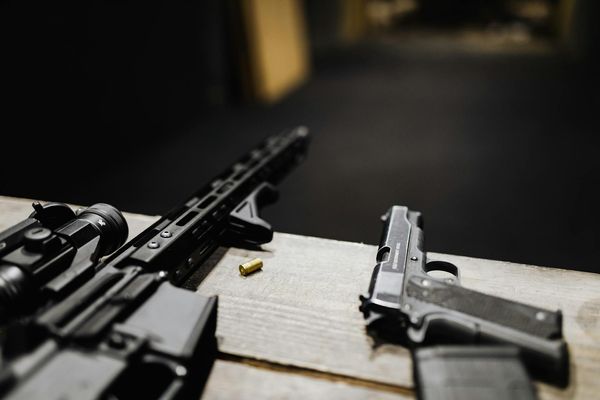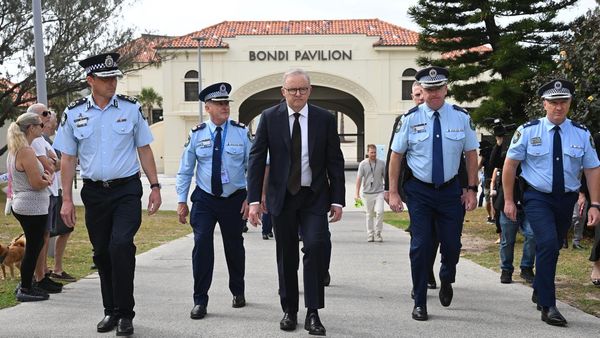
The BBC and the National Theatre are facing rising hostility over two high-profile productions about the Grenfell Tower fire disaster, with survivors and bereaved family members urging both institutions to drop their plans.
Some have even threatened to disrupt BBC attempts to film near the tower for its series, Grenfell, which will dramatise the tragic events around the night of 14 June 2017 in west London, when 72 people died as a result of the blaze. Others claim the National Theatre is stealing their experiences, despite its play being based on survivors’ first-hand accounts. A petition calling on the BBC to scrap its series has so far attracted more than 50,000 signatures.
Nabil Choucair, who lost his mother, sister, brother-in-law and three nieces in the fire, said: “Our identity is being stolen. They don’t listen to us – and now they want to do a play? A series? Who asked for this?”
Both the upcoming play and the planned TV drama are to be based on lengthy periods of research conducted locally and will be constructed from the testimony of many of those closest to the tragedy.
But the strength of local opposition exposes how raw feelings remain around ownership of the truth about the fire, and the high level of suspicion about even well-intended interventions from national institutions.
Maryam Adam, who escaped from the burning tower while three months pregnant, said she felt blindsided by the plans. “Who are they talking to? Who gives them permission to do these things and then tell us after? Before you do this sort of thing, you should get our permission, because this is our pain, our story,” said Adam, who gave evidence to the public inquiry into the disaster.
David O’Connell, a leaseholder on the Lancaster West estate, which includes Grenfell, voiced concerns that both productions were coming too soon to be seen as definitive. The inquiry into the tragedy closed last year, and its eagerly awaited final report, likely to run into thousands of pages, is yet to be published.
O’Connell said: “The BBC series is useless unless it shows something new and revelatory. The proper way you tell the story happens 20 years after, when all the hidden stuff is out.

“There’s no way people want to be part of this BBC series. It’s a fictionalised version of my lived experience. For us it’s repetitive and triggering.”
Frank, the next of kin of two people who died in the fire, said that the way in which some people had learned about the planned BBC series and National Theatre production had infuriated many. “The BBC series was announced through a newspaper report, posted in one of our WhatsApp groups, and the play was a letter in the mail.”
He warned that the backlash would hamper any attempts to film by the BBC in the area of north Kensington where the remains of Grenfell still stand. “It will be very hard for the BBC to do any filming here without cooperation – and we won’t cooperate because people are very angry here.”
Two acclaimed writers are working on scripts for the story of the fire. Gillian Slovo, the South African writer and daughter of the anti-apartheid politician Joe Slovo, will be working on a verbatim play based on interviews conducted with survivors.
Announcing this stage production, called Grenfell: In the Words of Survivors, the theatre said Slovo had spent five years “gaining the confidence of community members and recording their accounts”. Opening in July, it will be told in three parts and include a filmed final section in which survivors and the bereaved speak. “Grenfell was something the National Theatre needed to address on the national stage. It was our responsibility to make sure their voices were heard,” Slovo has said.
The story will be told for TV by the screenwriter and film-maker Peter Kosminsky, who adapted and directed Wolf Hall for television. Kosminsky and his collaborator, producer Ahmed Peerbux, are making a three-part drama, but it is a long-term project and not likely to be broadcast for at least two years. “Ahmed and I started working on this series a few days after the fire,” Kosminsky told the Observer. “He had been volunteering at the scene, along with his wife.”
Kosminsky, who has worked in television for 43 years, regards this drama as his most challenging so far. “We have spoken to a great number of people off camera from every group affected, from the bereaved to volunteers and those who worked in hospitals. In fact, the actual fire will take up a fairly small part of the drama,” he said. “We will begin months before and will cover the botched refurbishments. And we will go on long after the fire, well into the woeful responses to the disaster.”
Kosminsky’s script will use multiple perspectives, he said. The team attended each day of the public inquiry.

“Our drama certainly is not going to be the story of one or two people trapped on the 17th floor, or something like that,” said Kosminsky, adding: “I have never worked on anything that has gone into something as deeply and fully. We want to understand what has occurred and to make a small contribution to making sure that nothing like this can ever happen again in this country. It was a terrible tragedy and it was avoidable.”
Not every resident is opposed to the productions. One survivor, Hanan Wahabi, spoke out in support of the play: “With each year that goes by our pain doesn’t stop, but we must keep our stories alive and at the forefront of people’s minds. When people watch this play, I have no doubt that they will want to do something, whether through word of mouth or through action.” Wahabi lost her home in the tower, and her brother and his entire family died in the fire.
“The domino effect of this is the power. The National Theatre is supporting us by taking our stories beyond our borders of north Kensington,” she added.
The hostile response from some residents contrasts with reaction to Steve McQueen’s acclaimed silent film on Grenfell, showing at the Serpentine Gallery this month. “McQueen was seen as a local. He did it with sensitivity and for the right reasons,” said O’Connell.
Maria, who has lived on the west London estate containing Grenfell for 21 years, also felt the play and drama series were being produced prematurely. With the inquiry report yet to be published, criminal prosecutions in connection with the fire may not begin until 2024. Maria said: “It’s still very sensitive, and the guilty people are not even behind bars.”
A BBC spokesperson said: “We are extremely mindful of the impact that a project of this nature can have on those whose lives have been personally affected, and this programme will be made with the utmost sensitivity and respect. It will draw on over five years of research to ask not only how this terrible tragedy was able to occur, but also what we can learn to ensure that the events at Grenfell can never happen again elsewhere.”







